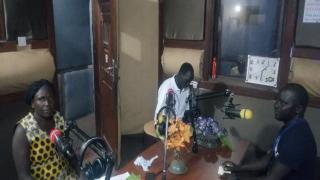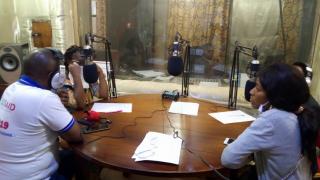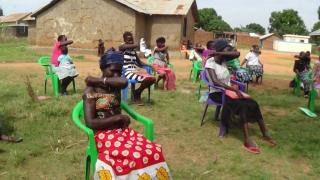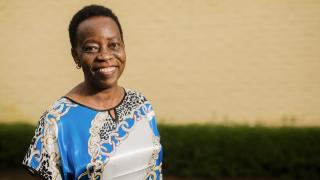Connected Without Contact
On-the-Air in South Sudan and the Democratic Republic of the Congo

The success of the radio programme in South Sudan has inspired our team in the Democratic Republic of Congo (DRC), where mobile phone reception, access to personal phones, and literacy are also challenges for women we serve.
Our team in DRC partnered with the local government’s Ministry of Health to air radio programs about COVID-19 and the local response. As with the broadcasts in South Sudan, listeners in the DRC can call in with questions and get answers from our staff, members of the ministry of health, and experts in Ebola — another infectious disease outbreak affecting eastern DRC since 2018, which has recently flared up again. While the viruses are very different, combatting Ebola has provided valuable lessons on how to contain the spread of COVID-19.
Alongside broadcasts, our team continues to work with the local government and experts to produce radio spots, advertisements that air in French and Swahili throughout other radio programming to regularly educate people on preventing the spread of COVID-19.

Over the next few weeks, we look forward to sharing some other ways that we’ve been staying connected without contact to contain the spread of coronavirus throughout our global programmes.
Read more
We Are "Hanya"
subtitle:
Women entrepreneurs in Iraq are preventing the spread of COVID-19.
We invest in the strength of women’s connections and community, even across distances. Our teams and participants are now using those connections to protect and support one another during the COVID-19 pandemic.
As the Coronavirus pandemic spreads across the world, we are hearing from our global colleagues about how the crisis is affecting them and the women they serve.


